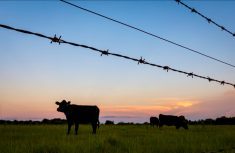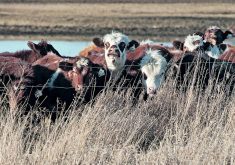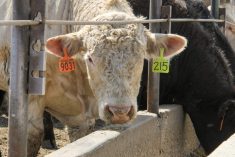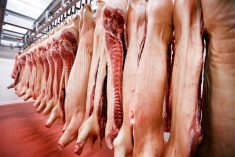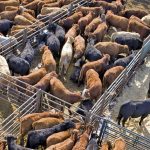U.S. meat industry lobbyists say Washington’s proposed new rules governing voluntary ‘Product of USA’ or ‘Made in the USA’ labels would “impose the same standard” as that country’s now-defunct mandatory country-of-origin labelling (COOL) law — and frustrate U.S. packers who import Canadian meat or livestock.
The U.S. Department of Agriculture and its Food Safety and Inspection Service (FSIS) on Monday announced they plan to publish a new proposed rule on U.S. meat origin labels for a 60-day public comment period.
USDA said in a release the new rule will offer “new regulatory requirements to better align the voluntary ‘Product of USA’ label claim with consumer understanding of what the claim means.”
Read Also
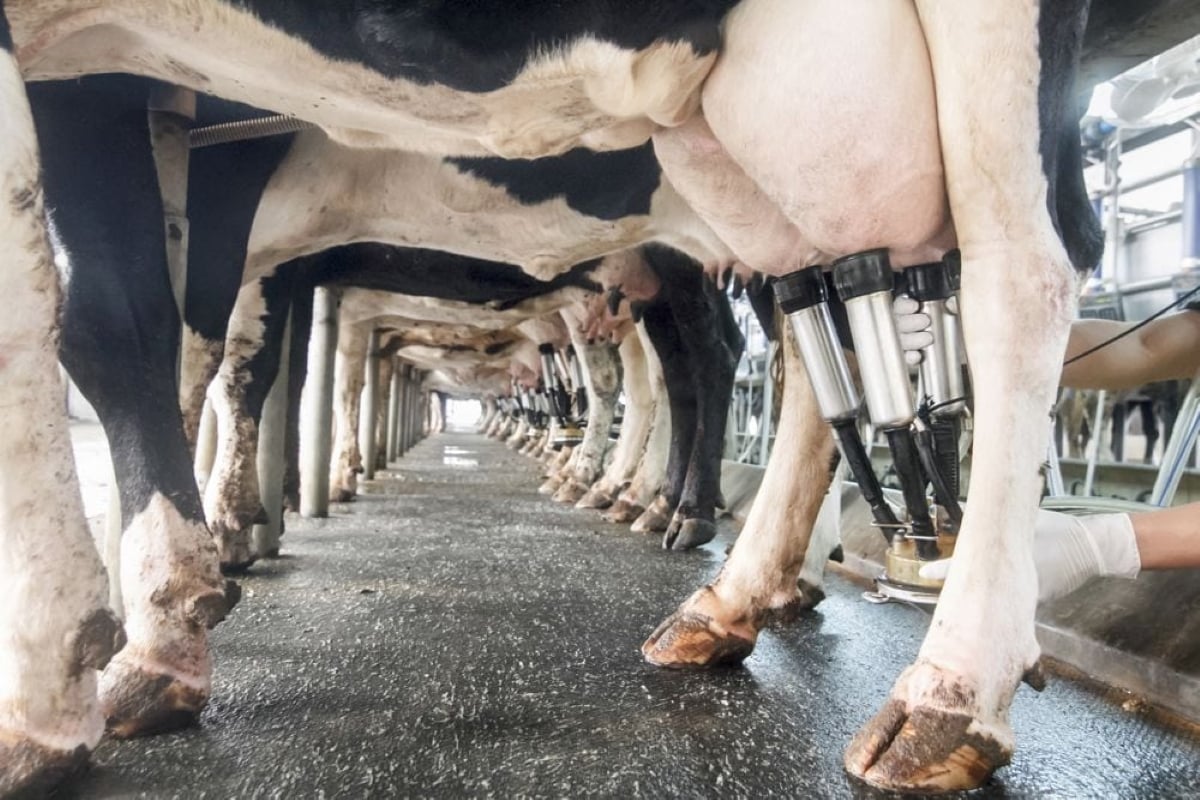
Nestle quits global alliance on reducing dairy methane emissions
Food group Nestle said on Wednesday it had withdrawn from a global alliance for cutting methane emissions that aims to reduce the impact of dairy farming on global warming.
USDA said Monday it undertook a review starting in July 2021 “to understand what the ‘Product of USA’ claim means to consumers and inform planned rulemaking.”
The department said it found in a related survey of U.S. consumers that “a significant portion believ(es) the claim means that the product was made from animals born, raised, slaughtered and processed in the United States.”
A “Product of USA” label claim would continue to be voluntary under the new rule, and would also still be eligible for “generic label approval” — meaning it would not need FSIS pre-approval before it could be used on regulated product.
However, the new rule would require that supporting documentation for so-labelled products be kept on file for FSIS personnel to verify.
Apart from the “authorized” label claims for ‘Product of USA’ or ‘Made in the USA,’ the rule also proposes to allow other voluntary U.S. origin claims seen on meat, poultry and egg products sold in the marketplace.
However, those other claims would need to include a description on the package of “all preparation and processing steps that occurred in the United States upon which the claim is made.”
Those other label claims are described as “qualified” claims. “Sliced and packaged in the United States, using imported pork” was given as an example of a qualified claim.
Currently, USDA said, FSIS-regulated products coming from animals that may have been born, raised and slaughtered in another country but are “minimally processed” in U.S. facilities may currently be labeled as ‘Product of USA.’
That policy, USDA said, “may be causing false impressions about the origin of FSIS-regulated products in the U.S. marketplace.”
“American consumers expect that when they buy a meat product at the grocery store, the claims they see on the label mean what they say,” U.S. Agriculture Secretary Tom Vilsack said Monday in the department’s release. “These proposed changes are intended to provide consumers with accurate information to make informed purchasing decisions.”
‘No evidence’
However, the North American Meat Institute, a U.S. lobby group representing beef, pork, lamb, veal and turkey packers and processors, said the proposed new rule “uses the same standard” as the mandatory COOL statute Washington repealed in 2015.
Mandatory COOL was first developed during the Clinton administration, passed near the end of the George W. Bush administration in 2008 and put in place during the Obama administration in 2009. It imposed mandatory origin labels for beef, pork, lamb, chicken and goat meat and certain other perishable commodities where sold at retail in the U.S.
Canada and Mexico responded by challenging COOL at the World Trade organization and in U.S. courts, because the COOL rules — as applied by Vilsack as the Obama administration’s ag secretary — called for U.S. processors of meat from imported animals to provide labels that detailed where the specific animals involved in a given package of meat were born, raised and slaughtered.
The costs involved in segregating animals and production lines to follow the COOL law prompted some U.S. packers and processors to restrict or halt their imports or cut the prices they paid for Canadian cattle and hogs. Some estimates at the time pegged Canadian cattle and hog producers’ losses to reduced prices and lost sales at over $8 billion.
Washington-based NAMI said the U.S. government “lost four times” against Canada and Mexico before the WTO in 2015 authorized those countries to levy over US$1 billion in retaliatory tariffs on U.S. goods if the COOL rule wasn’t withdrawn.
By comparison, the new rule announced this week would limit the use of voluntary ‘Product of USA’ claims, so that only products made from livestock born, raised, harvested and processed in the U.S. could be so labelled, NAMI said.
But such a rule, NAMI said, “will have a discriminatory effect, causing meat packers and processors who wish to make the claim to segregate cattle, hogs, and meat from other nations.”
That segregation “was the basis for the WTO finding and is what allows Canada and Mexico to levy tariffs on American goods,” NAMI said.
Canada and Mexico “still retain that (WTO) authorization” for retaliatory tariffs, NAMI said, and any new label law that uses the same standard as mandatory COOL would allow those countries to “initiate retaliation with no further action by the WTO.”
NAMI also claims the proposed new label rule would actually be “broader than mandatory COOL” because it would also cover processed products, and products intended for foodservice, none of which were subject to the COOL rule.
The lobby group emphasized consumer opinion and transparency are “important to the meat and poultry industry” but said “there is no evidence this rule will increase already high consumer demand for meat and poultry products.”
Also, while supporters of the former COOL and the proposed new rule “like to claim” mandatory COOL increased the prices U.S. beef producers received in the years before that rule’s repeal, “this assertion ignores basic supply and demand fundamentals,” NAMI said.
“In 2015, cattle prices saw record highs because there was a limited supply of cattle to harvest increasing demand. And today, without COOL, cattle prices are again approaching record highs, also due to supply and demand.”
The proposed new rule also “does not consider the integrated nature of the North American meat and poultry industry,” NAMI said. “Livestock and meat products from Canada and Mexico are shipped, tariff-free, across the border for slaughter and processing in the United States. Likewise, meat products are shipped from the United States to Canada and Mexico.”
That “integrated competitive market” allows for more affordable beef and pork for U.S. consumers, NAMI said.
“Unfortunately, this proposed rule is problematic for many reasons. USDA should have considered more than public sentiment on an issue that impacts international trade,” NAMI CEO Julie Anna Potts said in a release.
Will review
In a separate statement Tuesday, Canada’s Agriculture Minister Marie-Claude Bibeau and Trade Minister Mary Ng concurred that the Canadian and U.S. meat and livestock sectors are “highly integrated” and that collaboration “contributes to the growth and resilience of farmers and processors on both sides of the border.”
Canada “remains concerned about any measures that may cause disruptions to the integrated North American livestock supply chains,” they said, and will “closely review” the proposed new rules.
The ministers said the federal government will also “participate in the U.S. rule-making process” to make sure the new rules adhere to Washington’s international trade obligations and won’t disrupt supply chains.
Bibeau and Ng also emphasized the Canadian government remains “firmly opposed” to any U.S. proposition that would attempt to revive a mandatory COOL system.
According to Agriculture and Agri-Food Canada, language has also been included in the 2020 Canada-U.S.-Mexico Agreement (CUSMA) requiring that each party to the trade pact ensures any regulations on labeling “accord treatment no less favourable than that accorded to like goods of national origin.”
Any rules on labeling that any of the CUSMA free trade bloc members impose in the future also must “not create unnecessary obstacles to trade between the parties.”
All that said, separate legislation, which if passed would compel the U.S. Trade Representative’s office and USDA to come up with a new and WTO-compliant mandatory COOL system just for beef, has already been before Congress for months or more.
A bill introduced in the U.S. Senate in September 2021 by Senator John Thune of South Dakota was read twice in that chamber and referred to its agriculture, nutrition and forestry committee.
An identical bill introduced in the U.S. House of Representatives in late March last year by Texas Rep. Lance Gooden was referred at that time to the House ag committee, and to the House committee on ways and means. The ag committee last April 18 referred the bill to a House subcommittee on livestock and foreign agriculture. — Glacier FarmMedia Network





